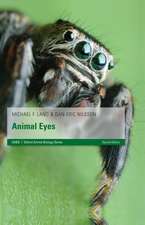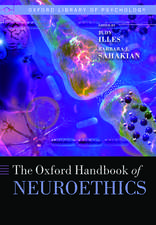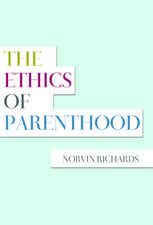Biotechnology and the Integrity of Life: Taking Public Fears Seriously
Autor Michael Hauskelleren Limba Engleză Paperback – 15 noi 2016
| Toate formatele și edițiile | Preț | Express |
|---|---|---|
| Paperback (1) | 469.34 lei 6-8 săpt. | |
| Taylor & Francis – 15 noi 2016 | 469.34 lei 6-8 săpt. | |
| Hardback (1) | 1053.16 lei 6-8 săpt. | |
| Taylor & Francis – 28 noi 2007 | 1053.16 lei 6-8 săpt. |
Preț: 469.34 lei
Nou
Puncte Express: 704
Preț estimativ în valută:
89.84€ • 97.62$ • 75.51£
89.84€ • 97.62$ • 75.51£
Carte tipărită la comandă
Livrare economică 21 aprilie-05 mai
Preluare comenzi: 021 569.72.76
Specificații
ISBN-13: 9781138265448
ISBN-10: 1138265446
Pagini: 176
Dimensiuni: 156 x 234 x 22 mm
Greutate: 0.45 kg
Ediția:1
Editura: Taylor & Francis
Colecția Routledge
Locul publicării:Oxford, United Kingdom
ISBN-10: 1138265446
Pagini: 176
Dimensiuni: 156 x 234 x 22 mm
Greutate: 0.45 kg
Ediția:1
Editura: Taylor & Francis
Colecția Routledge
Locul publicării:Oxford, United Kingdom
Notă biografică
Michael Hauskeller is an Associate Professor in the Department of Sociology and Philosopy, University of Exeter, UK.
Recenzii
’Helping to make sense of public concerns in policy areas is a highly worthwhile - and, perhaps, too seldom pursued - application of philosophical activity, for which reason alone, the project is commendable... a genuinely thought provoking read and very suitable for inclusion on lists of 'recommended reading' in the area.’ Environmental Values
Cuprins
Acknowledgements, 1. Introduction, 2. Tampering with Nature, 3. Integrity and Dignity, 4. Types and Forms of Integrity, 5. Platonic Justice and Aristotelian Virtue, 6. Telos, 7. Integrity as Bonitas, 8. Faith and Morality, 9. Integrity and the Reification of Life, 10. Genetic Essentialism, 11. Moral and Aesthetic Concerns, 12. Moral Disgust, Bibliography, Index
Descriere
Genetic engineering is still considered morally wrong by a large proportion of the public. Yet many scientists are puzzled about the public concern over a technology that, in their view, promises great benefits to humans and does not seem to cause more harm to animals than other practices which are rarely questioned. In this book, Michael Hauskeller takes public fears seriously and offers the idea of 'biological integrity' as a clarifying principle which can then be analyzed to show that seemingly irrational public concerns about genetic engineering are not so irrational and that a philosophically sound justification of those concerns can indeed be given.
















